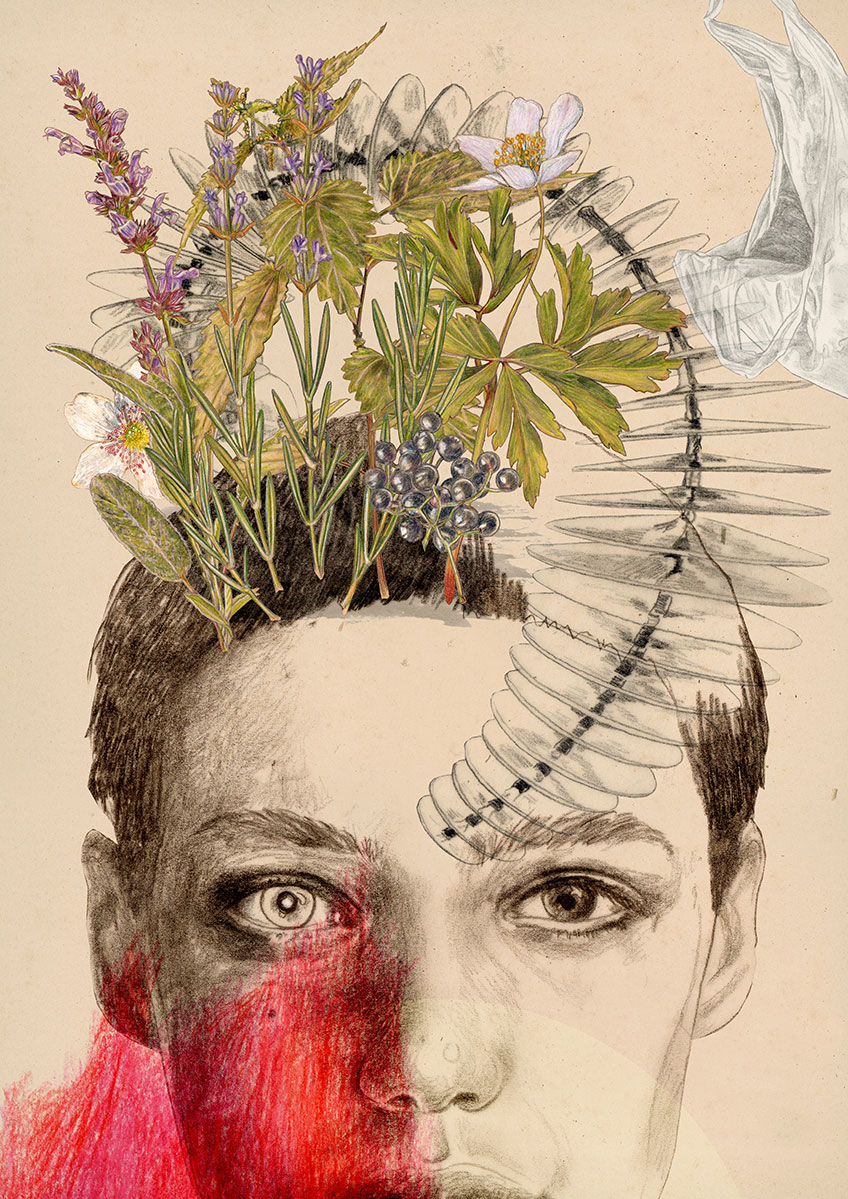
Hildegard of Bingen
Hildegard of Bingen | Benedictine nun, abbess, poet, music composer, polymath * 1098 | + 17. September 1179
„I see things solely with my soul.“ Hildegard of Bingen was a fascinating woman. A true rebel of her time, she was brave, liberated and insanely clever. She was both a polymath and a poet and spent her life as a Benedictine nun.
Hildegard came from an aristocratic family in Germany. In the 11th century, it was common practice for families to give one child to a convent or monastery. So, at eight years of age Hildegard was sent to live with Benedictine nuns. Life in the convent was hard. She spent her youth following a rigid routine of praying, studying and working from dawn to dusk. Hildegard made the most of her life in the convent and gained a broad education. While researching herbs and roots she discovered the health benefits of ginger. She wrote poems, biographies, theological writings, and books on medicine and naturopathy. She also preached in public about her findings.

It was extremely rare and quite risky for a woman in the middle ages to do the things Hildegard did. At the time, the prevailing opinion was that women were incapable of exercising their intellect or gathering knowledge on their own, and women who did so were swiftly denounced as witches.
Hildegard cleverly packaged her insights by putting God first. Claiming to be uneducated, she said that God was sending her visions. Using this tactic, she could spread her teachings far and wide while avoiding persecution and accusations of witchcraft. A commission appointed by the Pope verified that Hildegard was indeed gifted with visions from God. This approval from the highest ecclesiastical authority propelled Hildegard from the seclusion of convent life and onto the world stage.
Hildegard took over as abbess of the women’s monastery and demanded it become financially independent. Many people sought her advice in the areas of health, hygiene and sexuality and she was the first woman ever to write about the female orgasm. Regularly stirring up controversy, Hildegard wrote strongly-worded letters to the emperor at the time, took action on grievances, and provoked the church.
Although she was already revered as a saint during her lifetime, it wasn’t until 800 years after her death that Hildegard was officially canonised by the Pope. When it came to theology, philosophy and medicine, Hildegard brought inspiration and pivotal new ways of thinking to the middle ages. She was a pioneer of modern feminism and remains a role model to this day, teaching us to be fearless and go our own way.